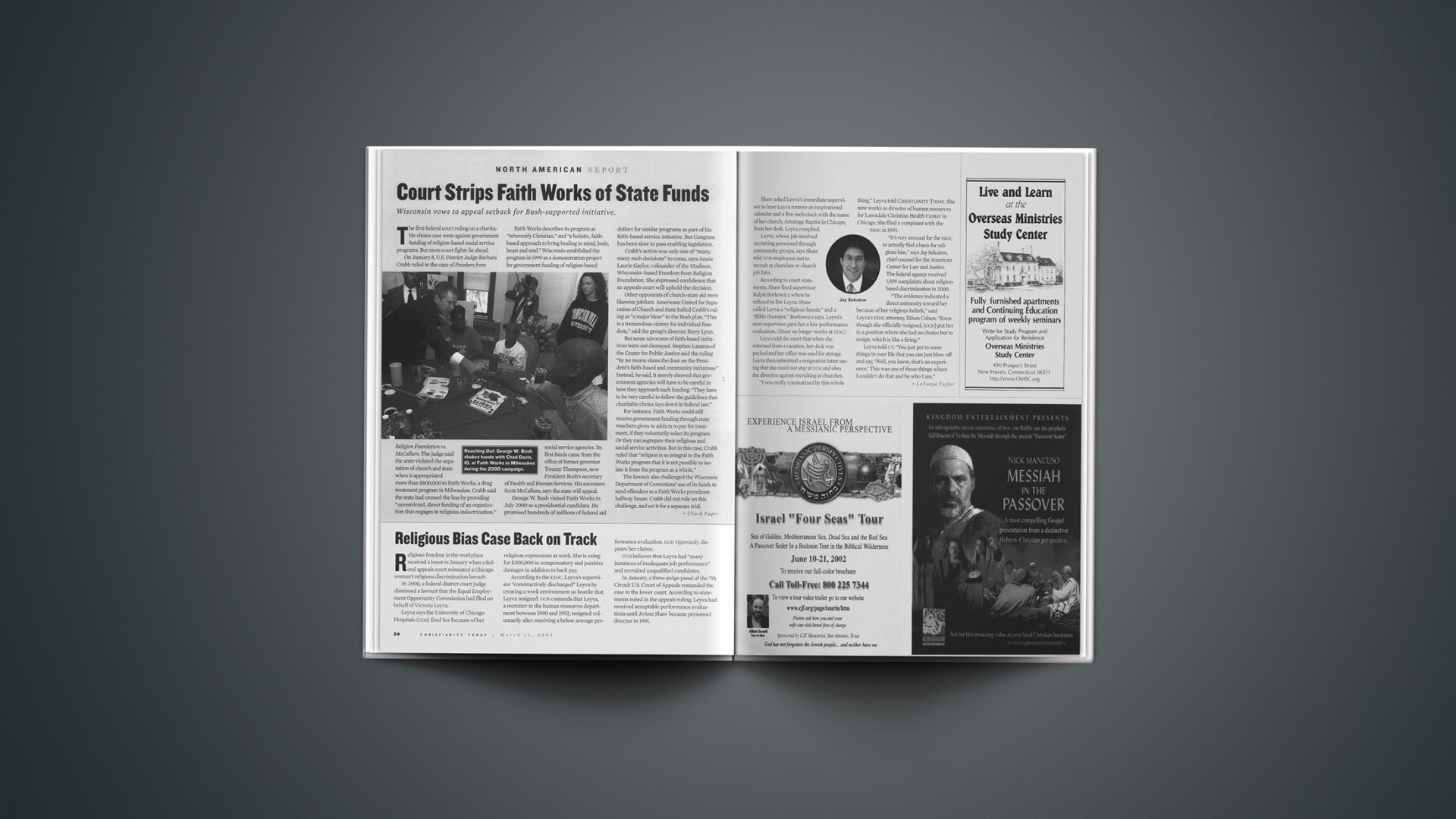Religious freedom in the workplace received a boost in January when a federal appeals court reinstated a Chicago woman’s religious discrimination lawsuit.
In 2000, a federal district court judge dismissed a lawsuit that the Equal Employment Opportunity Commission had filed on behalf of Victoria Leyva.
Leyva says the University of Chicago Hospitals (UCH) fired her because of her religious expressions at work. She is suing for $300,000 in compensatory and punitive damages in addition to back pay.
According to the EEOC, Leyva’s supervisor “constructively discharged” Leyva by creating a work environment so hostile that Leyva resigned. UCH contends that Leyva, a recruiter in the human resources department between 1990 and 1992, resigned voluntarily after receiving a below average performance evaluation. UCH vigorously disputes her claims.
UCH believes that Leyva had “many instances of inadequate job performance” and recruited unqualified candidates.
In January, a three-judge panel of the 7th Circuit U.S. Court of Appeals remanded the case to the lower court. According to statements noted in the appeals ruling, Leyva had received acceptable performance evaluations until JoAnn Shaw became personnel director in 1991.
Shaw asked Leyva’s immediate supervisor to have Leyva remove an inspirational calendar and a five-inch clock with the name of her church, Armitage Baptist in Chicago, from her desk. Leyva complied.
Leyva, whose job involved recruiting personnel through community groups, says Shaw told UCH employees not to recruit at churches or church job fairs.
According to court statements, Shaw fired supervisor Ralph Borkowicz when he refused to fire Leyva. Shaw called Leyva a “religious fanatic” and a “Bible thumper,” Borkowicz says. Leyva’s next supervisor gave her a low performance evaluation. (Shaw no longer works at UCH.)
Leyva told the court that when she returned from a vacation, her desk was packed and her office was used for storage. Leyva then submitted a resignation letter saying that she could not stay at UCH and obey the directive against recruiting at churches.
“I was really traumatized by this whole thing,” Leyva told Christianity Today. She now works as director of human resources for Lawndale Christian Health Center in Chicago. She filed a complaint with the EEOC in 1993.
“It’s very unusual for the EEOC to actually find a basis for religious bias,” says Jay Sekulow, chief counsel for the American Center for Law and Justice. The federal agency received 1,939 complaints about religion-based discrimination in 2000.
“The evidence indicated a direct animosity toward her because of her religious beliefs,” said Leyva’s EEOC attorney, Ethan Cohen. “Even though she officially resigned, [UCH] put her in a position where she had no choice but to resign, which is like a firing.”
Leyva told CT: “You just get to some things in your life that you can just blow off and say, ‘Well, you know, that’s an experience.’ This was one of those things where I couldn’t do that and be who I am.”
Copyright © 2002 Christianity Today. Click for reprint information.
Related Elsewhere
The official site of the Equal Employment Opportunity Commission has more information on the organization.










